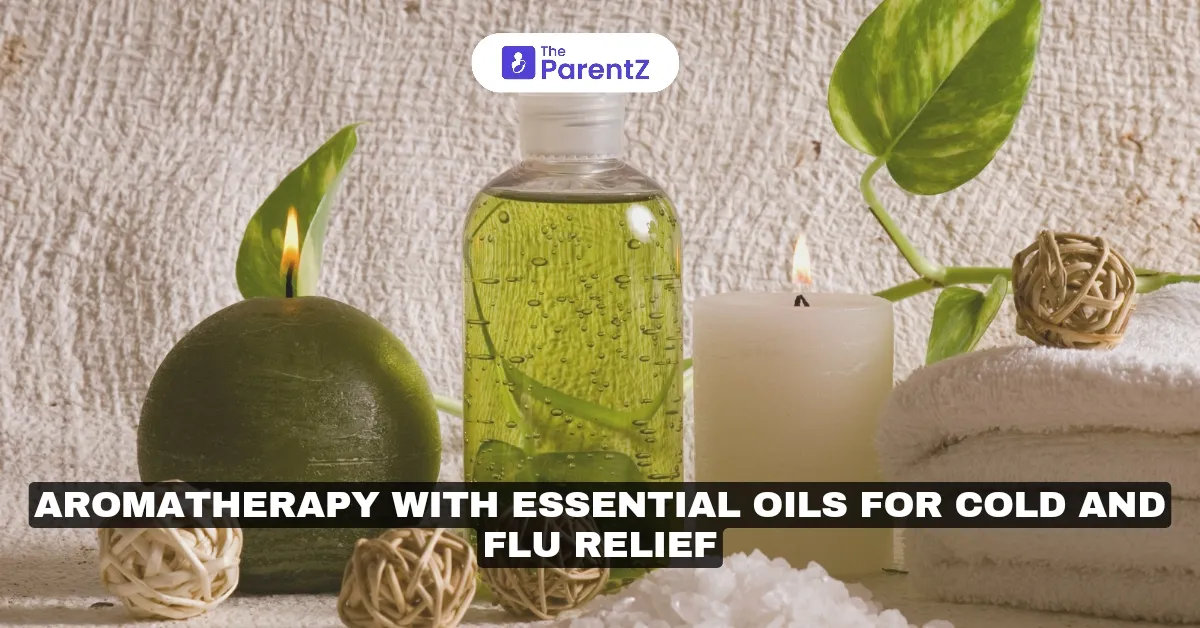Aromatherapy, the therapeutic use of essential oils, has been used for centuries to manage various ailments, including colds and the flu. Essential oils such as eucalyptus, peppermint, tea tree, and others can provide significant relief from symptoms like congestion, sore throat, headaches, and fatigue. This guide explores how aromatherapy serves as an effective natural remedy for cold and flu symptoms.
How Aromatherapy Works
Essential oils contain volatile compounds that can be inhaled or absorbed through the skin. When inhaled, these compounds interact with the olfactory system, directly influencing the limbic system in the brain, which governs emotions, stress, and some physiological functions. Additionally, many essential oils possess antimicrobial, anti-inflammatory, and expectorant properties that address the root causes of cold and flu symptoms, providing both physical and emotional relief.
Key Essential Oils for Cold and Flu
Eucalyptus Oil
Eucalyptus oil is rich in eucalyptol, a compound known for its anti-inflammatory, antiviral, and expectorant properties. It helps clear nasal passages, reduces chest congestion, and promotes easier breathing. To use eucalyptus oil, add a few drops to a bowl of hot water for steam inhalation or mix it with a carrier oil for a chest rub.
Peppermint Oil
Peppermint oil contains menthol, which provides a cooling sensation and acts as a natural decongestant and pain reliever. It soothes irritated nasal passages, alleviates headaches, and reduces throat discomfort. Inhale peppermint oil using a diffuser or add it to a steam inhalation to maximize its decongestant effects.
Tea Tree Oil
Tea tree oil is renowned for its antimicrobial and antiviral properties, making it effective against cold and flu viruses. It helps clear nasal passages, reduce throat irritation, and fight infection. Use it as a steam inhalant or dilute it with a carrier oil for topical application around the chest and neck.
Lavender Oil
Lavender oil is well-known for its calming properties, mild antimicrobial effects, and ability to reduce inflammation. It soothes sore throats, alleviates stress, and promotes restful sleep, aiding the body's natural healing process. Add lavender oil to a diffuser or use it in a warm bath for relaxation and symptom relief.
Lemon Oil
Lemon oil has uplifting and immune-boosting properties, along with antibacterial effects. It helps cleanse the air, reduces congestion, and supports the immune system. Diffuse lemon oil in the room or add a drop to warm water for inhalation to refresh the mind and body.
Rosemary Oil
Rosemary oil contains cineole, similar to eucalyptus, offering decongestant and anti-inflammatory benefits. It helps relieve chest congestion, reduces headaches, and enhances mental clarity. Use rosemary oil in a diffuser or mix it with a carrier oil for a chest rub.
Aromatherapy Techniques for Cold and Flu Relief
Steam Inhalation
Steam inhalation is one of the most effective ways to relieve nasal congestion and soothe irritated respiratory passages. To perform this method, add a few drops of essential oil, such as eucalyptus or peppermint, to a bowl of hot water. Lean over the bowl with a towel draped over your head to trap the steam and inhale deeply for five to ten minutes.
Diffusion
Using an essential oil diffuser disperses oil molecules into the air, providing continuous therapeutic benefits throughout the day. Add a few drops of your chosen essential oil to the diffuser, and let it run in your living space or bedroom to promote relaxation and symptom relief.
Chest Rubs
Chest rubs are a direct method of applying essential oils to the skin for localized relief. Mix a few drops of essential oil, such as tea tree or rosemary, with a carrier oil like coconut or almond oil. Massage the mixture onto your chest, back, and neck to alleviate congestion and support easier breathing.
Warm Bath
Adding essential oils to a warm bath can relax muscles, reduce body aches, and relieve respiratory symptoms. To prepare, mix a few drops of essential oil with a carrier oil or Epsom salts before adding it to the bathwater. Soak for 15 to 20 minutes to experience full-body relaxation and symptom relief.
Precautions When Using Essential Oils
It is crucial to dilute essential oils with a carrier oil before applying them to the skin to avoid irritation. Always perform a patch test to ensure there are no allergic reactions. Exercise caution when using essential oils around young children and pets, as some oils may be harmful. Pregnant women should consult a healthcare provider before using essential oils to ensure safety. Additionally, ensure you use pure, therapeutic-grade essential oils to maximize their effectiveness and benefits.
Conclusion
Aromatherapy with essential oils is a natural and effective way to alleviate cold and flu symptoms. Oils like eucalyptus, peppermint, and tea tree provide relief from congestion, coughing, and headaches, while lavender and lemon help reduce stress and enhance immunity. Incorporating these oils into your daily routine through methods such as steam inhalation, diffusers, and chest rubs can support faster recovery and improve overall well-being. By following proper techniques and precautions, aromatherapy can be a safe and beneficial addition to your cold and flu care routine








Be the first one to comment on this story.